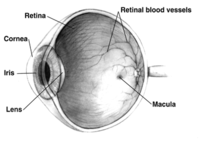
Advances in nonhuman primate models of autism: Integrating neuroscience and behavior
Sign Up to like & getrecommendations! Published in 2018 at "Experimental Neurology"
DOI: 10.1016/j.expneurol.2017.07.021
Abstract: Given the prevalence and societal impact of autism spectrum disorders (ASD), there is an urgent need to develop innovative preventative strategies and treatments to reduce the alarming number of cases and improve core symptoms for… read more here.
Keywords: primate models; models autism; autism integrating; advances nonhuman ... See more keywords

Non-human primate models of human respiratory infections
Sign Up to like & getrecommendations! Published in 2021 at "Molecular Immunology"
DOI: 10.1016/j.molimm.2021.04.010
Abstract: Respiratory pathogens represent a great burden for humanity and a potential source of new pandemics, as illustrated by the recent emergence of coronavirus disease 2019 (COVID-19). In recent decades, biotechnological advances have led to the… read more here.
Keywords: respiratory infections; human primate; primate models; non human ... See more keywords

Non-human primate models and systems for gait and neurophysiological analysis
Sign Up to like & getrecommendations! Published in 2023 at "Frontiers in Neuroscience"
DOI: 10.3389/fnins.2023.1141567
Abstract: Brain–computer interfaces (BCIs) have garnered extensive interest and become a groundbreaking technology to restore movement, tactile sense, and communication in patients. Prior to their use in human subjects, clinical BCIs require rigorous validation and verification… read more here.
Keywords: models systems; human primate; analysis; neurophysiological analysis ... See more keywords

Developing Non-Human Primate Models of Inherited Retinal Diseases
Sign Up to like & getrecommendations! Published in 2022 at "Genes"
DOI: 10.3390/genes13020344
Abstract: Inherited retinal diseases (IRDs) represent a genetically and clinically heterogenous group of diseases that can eventually lead to blindness. Advances in sequencing technologies have resulted in better molecular characterization and genotype–phenotype correlation of IRDs. This… read more here.
Keywords: human primate; developing non; inherited retinal; retinal diseases ... See more keywords